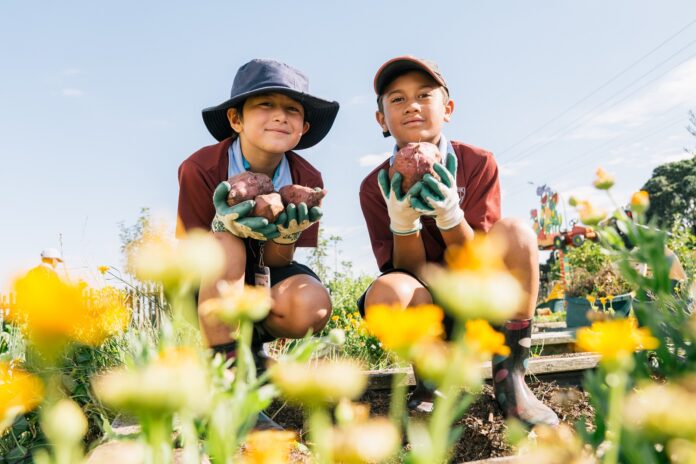Source: Auckland Council
“While hard work is underway to meet our Te Tāruke-ā-Tāwhiri: Auckland’s Climate Plan commitments, many of the major investments are still a few years away from being fully enjoyed. In the meantime, the fruits of climate leadership already blossoming all over Tāmaki Makaurau are important to celebrate,” shares Councillor Pippa Coom.
“These are some of the inspiring and innovative climate solutions happening right now that make me proud to be an Aucklander.”
How we build
Two-thirds of new housing is town houses and apartments on existing urban sites, and 25 per cent of new homes are within walking distance of rapid public transport.
Eke Panuku is requiring all new homes in its neighbourhoods to meet minimum 5 Star Home Star ratings and for new commercial developments to meet 5 Star Green Star ratings.
Auckland’s waterfront now has wide footpaths, dedicated cycleways and Te Wānanga, the new public space reaching out over the water.
Karangahape Rd now has wider footpaths, more street trees, new street furniture, improved lighting and a protected cycleway thanks to a $30 million upgrade.
Over 104,000 Auckland streetlights are now energy-efficient LEDs, reducing CO2 emissions by over 1500 tonnes.
Our urban ngahere is being restored, and last year there were 735,000 new trees planted across the region.
Within Auckland Council, we are tracking and reducing our own emissions by 20 per cent and improving the energy efficiency of our buildings. We are advancing local renewable energy generation from our community assets like swimming pools and libraries.
How we get around
The Auckland Council Group has raised more than $1 billion in green bonds to finance and refinance projects such as electric trains and cycling infrastructure. We were the first company in New Zealand to ever issue a green bond, when we started them in 2018. We also recently reaffirmed our C-40 cities policy of not investing in companies involved in the production of fossil fuels.
Aucklanders are enjoying the 33 quiet, low emissions buses now in service and the electric trucks in a few of the kerbside waste collections routes.
Cyclists biked past our counting sites more than 3.67 million times in FY 19/20. The city now has more than 300 kilometers of cycleways.
The City Rail Link train network will move the equivalent of 16 lanes of traffic. It diverts an incredible 98 per cent of its waste from landfill now while it’s under construction.
The Puhinui Station offers faster, more frequent and easier connections to Auckland Airport via the electric AirportLink bus fleet.
Green living
More than 5200 tonnes of materials were kept out of landfill last year through our Community Recycling Centres. New centres are opening up soon in Onehunga and Western Springs.
The investments in Auckland recycling is increasing the amount we can recycle. Up to 35 per cent of Auckland’s plastics can be recycled here in New Zealand instead of overseas.
Over 310 local schools are engaged in sustainability educations programmes sponsored by Auckland Council.
Papakura families have composted more than 4000 tonnes of food scraps through the kerbside collection service. The compost is now available at no charge for local residents to use in their gardens.
Kiwis have used the Future Fit carbon calculator tool to discover their carbon footprint more than 45,000 times. Their actions have then reduced emissions by more than 1800 tonnes.
Our home energy advice programme has saved participants an average of $320/year per household on power and water bills. Aucklanders can sign up for a free consultation.
Water projects
Watercare’s Central Interceptor wastewater project is well underway. It will stop over 80 per cent of wastewater overflows from the Western Isthmus, creating a legacy of clean, safe, healthy beaches.
The project has purchased three electric spoil haul trucks set to be delivered early 2022, which will reduce emissions by more than 300 tonnes over the lifecycle of the project – the equivalent of driving a car from Cape Reinga to Bluff over 800 times. They are also much quieter for our neighbours than traditional trucks.
As a region we have developed water-saving habits that on average are seeing 36 million litres less water consumed each day than in 2019 (based on the rolling 12-month average) – good for the environment and our pockets.



